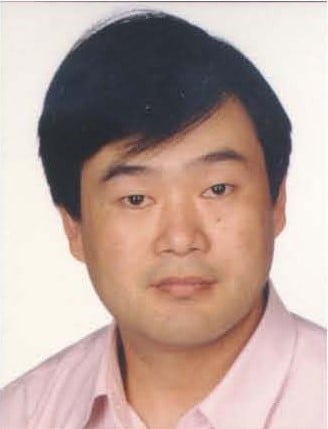Prof. Dr. Sixun Zheng Appointed the Section Editor-in-Chief of the Section “Smart and Functional Polymers” in Polymers
We are pleased to announce that Prof. Dr. Sixun Zheng has been appointed the Section Editor-in-Chief of the Section “Smart and Functional Polymers” in Polymers (ISSN: 2073-4360).

Prof. Dr. Sixun Zheng is a professor of polymer science and engineering at the Shanghai Jiao Tong University (SJTU), China. He holds a doctoral degree (Ph.D.) in Polymer Chemistry and Physics from the University of Science and Technology of China (USTC) acquired in 1997. Since 1992, he has worked at USTC first as an Assistant and then Associate Professor. As a postdoctoral researcher, he worked at Deutsches Kunststoff-Institut and the Technical University of Darmstadt, Germany, from 1998 to 1999, and the University of California at Irvine, California, USA, from 1999 to 2001. In 2001, he joined the Shanghai Jiao Tong University (SJTU) as a Full Professor. Dr. Zheng is now active in studies on the following topics: i) shape memory polymers; ii) self-healing polymers and vitrimers; iii) organic-inorganic nanocomposites of polymers with polyhedral oligomeric silsesquioxanes (POSS); and iv) microphase separation and self-assembly in thermosetting polymers.
He has published more than 230 scientific papers in international academic journals such as Advanced Materials, Chemistry of Materials, Macromolecules, The Journal of Physical Chemistry, Polymer Chemistry, Polymer, etc. According to the statistics from Elsevier Science Publishers, Prof. Dr. Zheng has consecutively been listed as one of the Most Cited Chinese Researchers since 2014.
The following is a short Q&A with Prof. Dr. Sixun Zheng, who shared his vision for the journal with us, as well as his views of the research area:
1. What appealed to you about the journal that made you want to take the role as its Section Editor-in-Chief?
The journal Polymers has built up a good reputation as an open access platform to disseminate discoveries, concepts, and ideas in polymer science and engineering. It is my honor to participate in the editorial team to serve the community. As a polymer scientist, I am pleased to have this opportunity to establish the Section “Smart and Functional Polymers”.
2. What is your vision for the journal?
This journal provides a new model of disseminating discoveries, concepts, and ideas in polymer science and engineering. Through this platform, authors can rapidly share their discoveries, concepts, and ideas, whereas readers can freely access the latest advances in this area. This feature significantly promotes and accelerates academic exchange. Over the past decades, this journal has established a strong and efficient editorial team. By providing high-quality services from article submission, and peer review to editorial decisions, Polymers will be one of the highly impacting and most important journals in polymer science and engineering.
3. What does the future of this field of research look like?
The field represents an active and rapidly growing trend in polymer science and engineering. The Section “Smart and Functional Polymers” welcomes original contributions reporting new ideas and concepts and also reviews summarizing the latest progress in this area. Smart polymers are synthetic polymers designed to mimic biopolymers with biological intelligence. The main characteristic of these polymers is their specialized functions that allow responding to changes in their environment. Such functional properties of polymers can facilitate separation, electronic conductance, photo- and electroluminescence, energy storage and conversion, data storage, and so on. Undoubtedly, this Section is particularly appealing to scientists specializing in materials science and engineering.
4. What do you think of the development of open access in the publishing field?
Open access represents a new model of publishing. Its advantages are high efficiency and rapid and free accessibility. The combination of open access with scientific research will result in the rapid dissemination of scientific knowledge, further promoting academic exchange. This feature is particularly evident in the internet era. Of course, open access will greatly promote further progress in polymer science.
We warmly welcome Prof. Dr. Sixun Zheng as the Section Editor-in-Chief of “Smart and Functional Polymers”, and we look forward to achieving many milestones under his leadership. For further information on this Section, please visit the following link: https://www.mdpi.com/journal/polymers/sections/Smart_Funct.